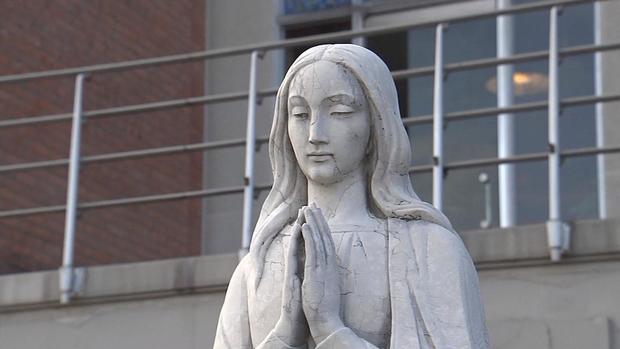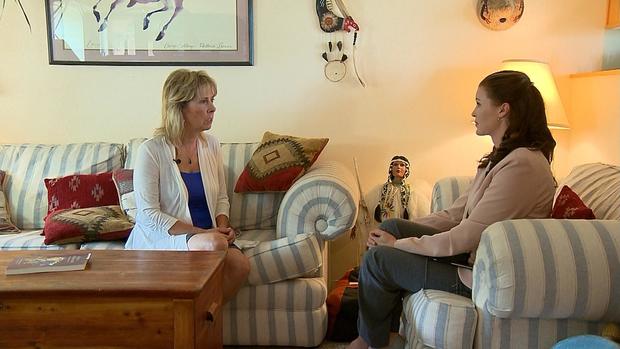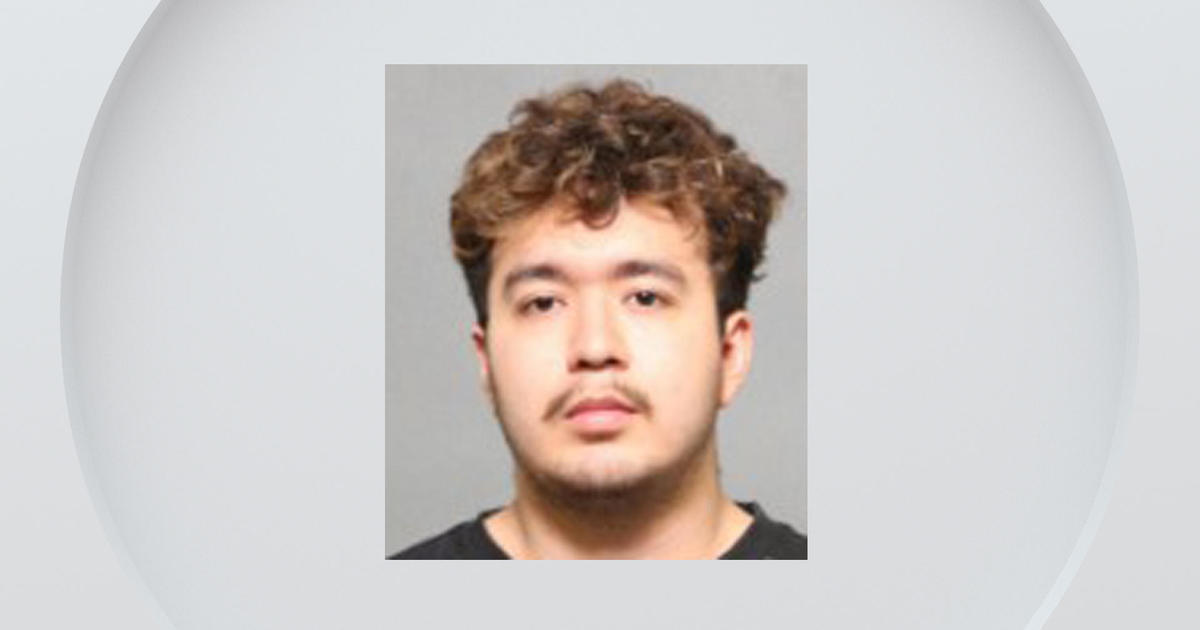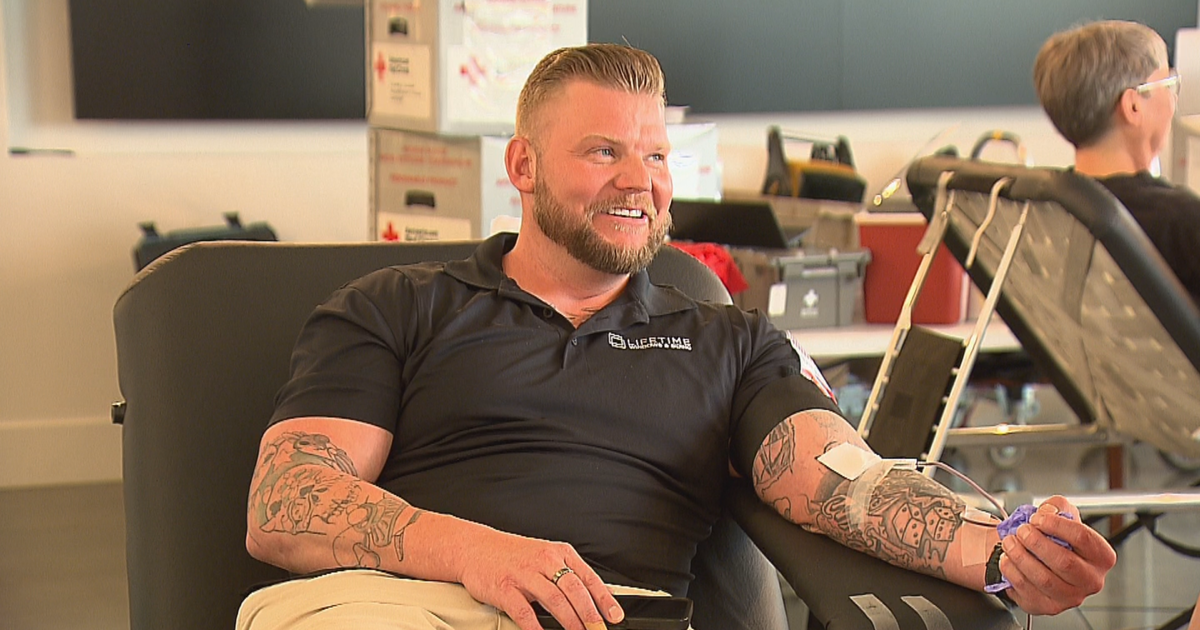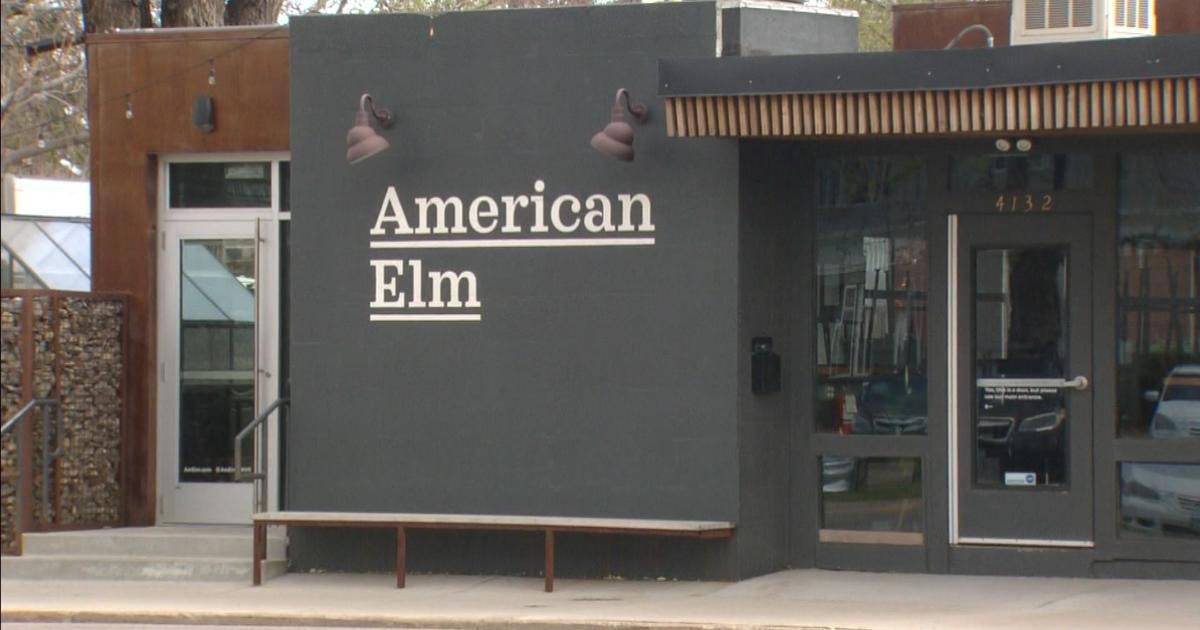Victim Speaks Out On Heels Of Church Sex Scandal Indictment Report
GOLDEN, Colo. (CBS4) – A woman who lives in Colorado is speaking out to give others hope decades after she suffered sexual abuse, allegedly at a Catholic parish.
Donna DeNomme, a resident of Golden, wants people to know that help is out there.
Her abuse happened out of state, before she moved to Colorado. For DeNomme, the week's national headlines regarding the Catholic church abuse scandal are hitting home.
A growing number of Roman Catholic clergy apologized Sunday at "masses of forgiveness" to survivors of clergy sexual abuse. The apologies came after a grand jury's report alleged rampant sex abuse affecting more than 1,000 by 300 priests in Pennsylvania.
"First and foremost is to be able to vent ... to address what is eating away at you from the inside out," DeNomme told CBS4's Melissa Garcia.
DeNomme is a psychologist and author who sees herself not as a victim, but as a survivor. She was 6 years old when she suffered sexual abuse, she said, at the hands of clergy in a Catholic church out of state.
"It wasn't simply an isolated pedophile who had snuck by their radar," she recalled of the trauma.
After years of suffering in silence, the now-spiritual coach has found hope and healing through a program that she created.
DeNomme is working with other church sex abuse survivors via the online program that blossomed from her books:
"There needs to be a healthy outlet for your anger and a way to reclaim your power," she said. "If there's somebody who's hurting, please reach out. There are people who can help."
LINKS: donnadenomme.com | wildsuccess4youinvitation.com/8-essential-keys-online-program/
"Even one instance of abuse is too many," said Mark Haas, a spokesperson with the Archdiocese of Denver.
"Catholic churches and Catholic schools are one of the safest places in the United States," he said.
As Haas explained, the church has made huge strides over the last few decades to protect its children, including mandatory reporting, internal investigation and audit protocols, and extensive background checks and training for priests, volunteers, and other employees.
"Our focus now is to prevent any abuse from happening currently. And if anything begins to happen, to stop it as quick as possible," he said.
Additional Resources
Read the Archdiocese of Denver Code of Conduct (pdf).
The following resources are provided by the Archdiocese of Denver:
How is the conduct of clergy monitored?
All priests, deacons, seminarians, consecrated lay people, employees, and volunteers who have regular contact with minors are required to complete a Safe Environment training program. This program teaches how to identify signs of misconduct and best practices for making churches and schools safe. Further, the Code of Conduct instructs that all signers, even if they are not considered a Mandatory Reporter by Colorado Law, are expected to report incidents of abuse or suspected abuse of children, elders, or at-risk individuals. Clergy are surrounded each day by people who have been through the Safe Environment training program and who have signed the Code of Conduct. Such individuals are expected to help set the standard of behavior and call out any problem behavior, even that of clergy.
What does the Archdiocese do to help children and youth protect themselves from abuse?
Every year, between 20,000 and 25,000 children and young people are trained in ways to keep themselves safe.
• Called to Protect for Young Children™ is designed to teach children in grades K-5 the skills they need to recognize boundary violations that precede abuse, to remove themselves from uncomfortable situations, and to tell a trusted adult when someone has crossed a boundary with them.
• Called to Protect™ for Youth is the first comprehensive program specifically designed to teach middle- and high school youths self-protection skills. The program uses a three-part DVD series and guided group discussion to teach young people how to recognize their personal boundaries, how to respond if someone tries to violate their boundaries, and what to do if someone is sexually abusing them or someone they know.
Of course, adults cannot hold children and teenagers solely responsible for their own safety, but we can train them to play an active role in keeping themselves, their friends and their activities safe.
How is the Archdiocese held accountable for its prevention practices?
Every year the Archdiocese participates in a United States Conference of Catholic Bishops (USCCB) audit on the Implementation of the Charter for the Protection of Children and Young People. The curriculum for training adults and children in abuse prevention and reporting, info on how parishes are audited for compliance, and reports on any accusations that were made and their credibility, are reviewed annually by an independent outside firm. Every three years this audit is accompanied by in person interviews of all archdiocesan personnel involved with child and youth protection. The Archdiocese has been found in compliance every year since the annual audit began in 2003.
LINK: usccb.org/issues-and-action/child-and-youth-protection/audits.cfm
What are the channels for reporting?
1. Abuse against a minor, by anyone:
-Must be reported to local law enforcement or 1-844-CO-4-KIDS / 1-844-264-5437
-Fill out the Archdiocese of Denver Reporting Form.
-Contact Victim Assistance Coordinator – 720-239-2832 – victim.assistance@archden.org
2. Abuse against the elderly, by anyone:
- Contact Law Enforcement or County Adult Protective Services
- Fill out the Archdiocese of Denver Reporting Form.
- Contact Victim Assistance Coordinator – 720-239-2832 – victim.assistance@archden.org
3. Abuse of power or other misconduct by a priest or deacon:
-Contact Priest Personnel (Office of Bishop Rodriguez) – 303-715-3197
How does the Archdiocese screen men who apply for seminary or permanent diaconate formation?
The application process for entering seminary and the diaconate is multi-layered and stringent. The men first begin to develop a discernment relationship with the Director of Vocations or the Director of Deacon Formation through discernment retreats and one-on-one conversations. These relationships help the directors evaluate the man on a personal and informal level. All areas of life pertaining to a priestly discernment are discussed with the director including sexuality, academics, family-of-origin experiences, and prayer life. Once the man begins to understand and demonstrate evidence of a call to the priesthood or the diaconate, and once the director has separate and converging evidence that the man is being called by God, then he may begin the formal application process.
What does the formal application process for seminary and diaconate formation entail?
The application is a 24-page document asking many direct and probing questions about a man's discernment of the priesthood or the diaconate, his family life, religious experiences, educational background, and financial situation. In addition to the application itself, the following are also required:
• A four-hour psychological evaluation, which includes a battery of psychological tests and a personal interview with a trained Catholic professional who evaluates the candidate's compatibility with the state of life he is pursuing
• Four letters of reference from family, friends, associates, and at least one priests
• An autobiography
• A physical and dental exam, along with blood-work
• A thorough criminal background check.
Once an applicant has completed these steps with the Director of Vocations or the Director of Deacon Formation, and if there are no impediments nor red-flags, then he is scheduled for an interview with the seminary board of review and a personal interview with the Archbishop. At any point during the process, a man can be asked to delay his entrance into the seminary or diaconate formation, or to discern a different vocation.
Melissa Garcia has been reporting for CBS4 News since March 2014. Find her bio here, follow her on Twitter @MelissaGarciaTV, or send your story idea to mkgarcia@cbs.com.
